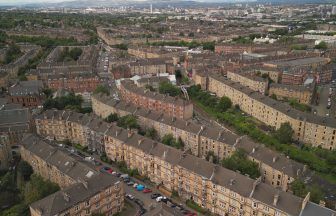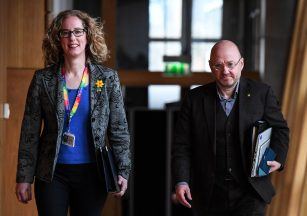Today, there is anger and even tears as many young people come to terms with the results of yesterday’s SQA awards.
University places are now in jeopardy and career ambitions lie in tatters as incandescent social media posts conduct a backlash against a process described as ‘classist’.
A common theme is that bright pupils attending schools in more socially disadvantaged areas have been left high and dry by a system that entrenches the view that educational advancement is best achieved by the middle class.
From the moment it was announced the exam diet was cancelled, a backlash of sorts was inevitable, the only real issue was what form it would take.
Let’s be clear about one thing. Grades not awarded that were expected will leave a lasting legacy of bitterness. 2020 will be the year when long into the future adults will say, that was the year when my dreams were shattered.
Those who feel aggrieved have been mugged not by their own inadequacies in an examination room but by a process. Pupils did not fail quite simply because they were not given the opportunity to pass in the first place.
No amount of explanations about how robust the process is will dissipate that anger and convince those who are distressed by this that they have been treated fairly.
Young people lie awake at night running over in their heads what combination of grades they might get and what it might lead to in educational and career terms.
The exams issue burns deep in their emotional psyche and can have life changing consequences for their self-esteem and personal development. That prospects have been condemned by issues beyond their control will forever leave a sense of injustice. Nothing will change that. Ever.
This is a situation defined by upset but with little chance of mitigation. In a sense the SQA are in an impossible situation and I would assert that there is no system that could have been devised that would not have led to a fall-out of sorts so long as students were not sole masters of their own qualification destiny.
There is always anguish at this time of year, it is just that in August of 2020 students have a process on which to hang their frustrations.
Now I do not believe for one second that John Swinney or the SQA hierarchy have been or are indeed indifferent about student or teacher concerns. The exams were a victim of Covid, ministers and administrators were a victim of Covid and above all the students have been victims too. No-one should ever lose sight of that fact.
This was always an exercise in trying to be fair when unfairness was already hard wired into the system by circumstances beyond the control of those who conduct the exams.
The social media posts by pupils bewildered by being downgraded in some subjects and the greater bewilderment at some upgrades in others, point to anomalies even if it is not conclusive to suggest the entire system is corrupt in the fairness stakes.
A number of things clearly need to happen of which transparency is key in explaining why decisions were taken in the way they were.
Students deserve a written explanation of the decision arrived at on appeal and not just a terse statement saying the appeal is successful or unsuccessful. They deserve no less. A standardised response to the thousands of appeals will fuel suspicion the process is a template in saving face and is indeed not robust or fair.
Particular focus should be given to the point raised yesterday by EIS general secretary Larry Flanagan. He wants the SQA to look at the issue of students who have marginally failed exams as in his experience this has a particular pertinence in schools in poorer communities.
The SQA chief executive and the education secretary must appear before MSPs and answer the full range of students’ concerns.
Now John Swinney has been clear that the system employed this year is not only fair but is robust. Pass rates are up, those students from socially disadvantaged backgrounds have not, in relative terms, lost out. An appeals system is in place to deal with grievances.
Until the appeals process is exhausted, this will continue to be a live and emotive issue. Now, more than ever, Scotland’s young people deserve answers.

 Getty Images
Getty Images




















